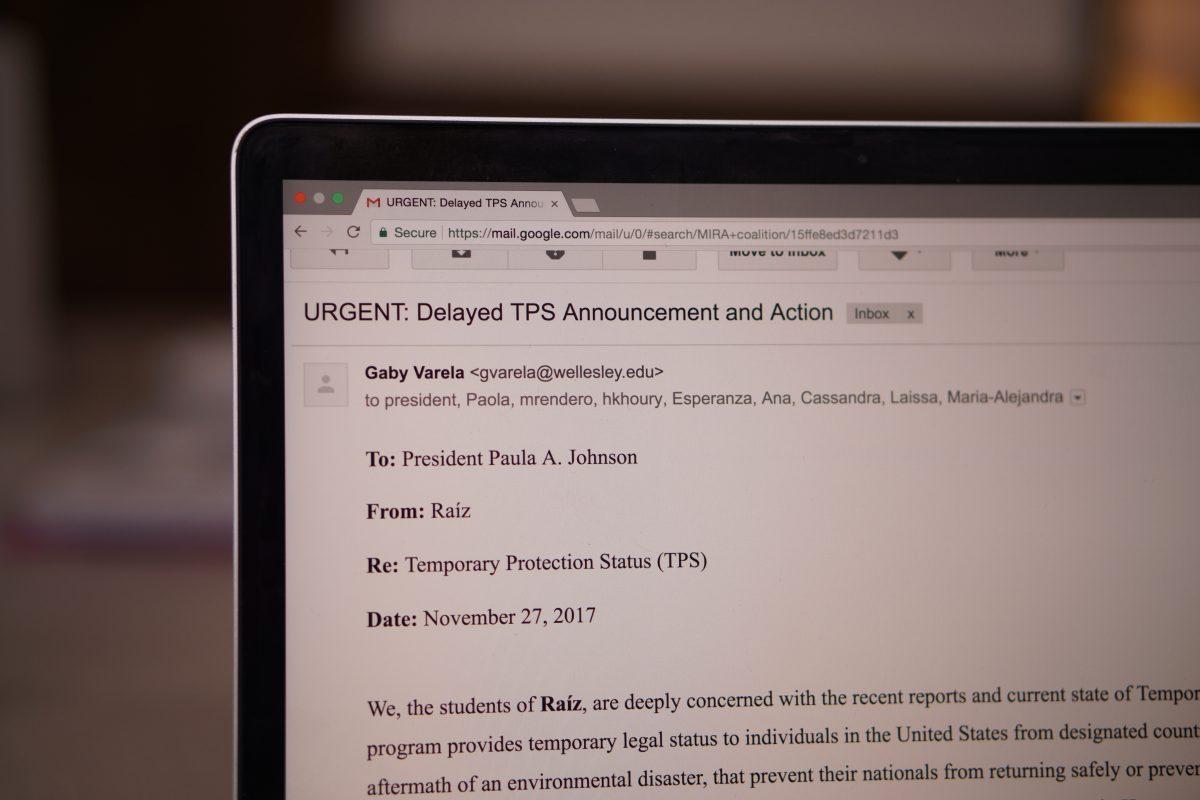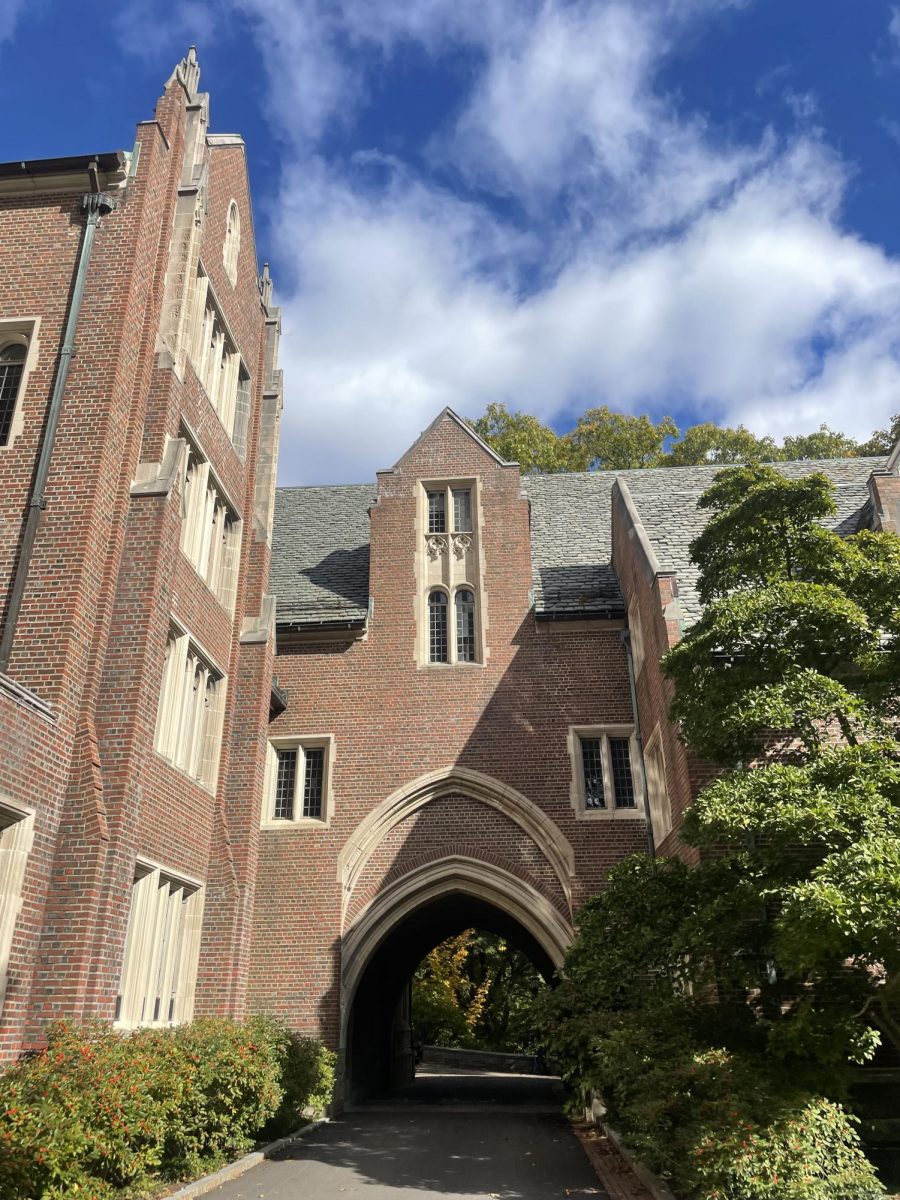On Nov. 27, Raíz, the Latinx advocacy group at Wellesley, sent out a campus-wide email addressed to President Paula Johnson, bringing her attention to the termination of Temporary Protected Status (TPS) protections for undocumented immigrants from Sudan, Nicaragua and Haiti. According to the Raíz letter, the TPS program “provides temporary legal status to individuals in the United States from designated countries facing conditions, such as ongoing conflict or the aftermath of an environmental disaster, that prevent their nationals from returning safely or prevent the country from adequately handling the return of its nationals. TPS provides these recipients protection from deportation and a work permit.”
About 300,000 people are currently in the United States under TPS. TPS status, however, has been terminated for people from Sudan, Nicaragua and Haiti because the Trump administration no longer considers those areas dangerous enough to warrant TPS. This change in designation stands to threaten the ability of some members of the Wellesley community to stay in the country legally.
“In the current political climate, it is difficult to take attention away from other important immigration legislation, such as the Muslim ban, the border wall and the repealing of DACA,” the letter explained. “Our aim is not to divert from these important issues, but to include TPS recipients in the conversation surrounding humane immigration reform and legislation.”
So far, TPS termination has not received as much attention in the news media thus far as other human rights and immigration issues, such as the DACA repeal, have. This pattern is visible at Wellesley, too. On Sept. 5, the DACA repeal was announced, prompting President Johnson to release a statement condemning the action that very day. However, she has yet to release a formal statement regarding TPS.
The Raíz letter included four demands, including that President Johnson release a formal statement and that she and the administration leverage their power of advocacy on the national stage on behalf of TPS recipients. They also demanded free
legal assistance for students, faculty and staff who might be affected by changing immigration legislation, full transparency regarding future employment status of college employees affected by TPS and greater transparency around the functioning of the College’s Working Group on Immigration and Refugee Policy.
Two other student groups, Students for Justice in Palestine (SJP) and Sexual Assault Awareness for Everyone (SAAFE), also emailed out their own versions of the letter to President Johnson. In SJP’s letter, they noted the similarity between the struggles of undocumented immigrants in the U.S. and the struggle of the people in Palestine.
SAAFE also noted that TPS––and immigration issues in general––is important to their organization because, as SAAFE Vice-President Sarah Nwafor ’20 noted,
“immigrants are important, and undocumented people are important. And if you want to talk more about how undocumented status intersects with interpersonal violence, it’s just that when talking about abuse and interpersonal violence, we talk a lot about how people––specifically abusers––can take advantage of people’s vulnerabilities, and being undocumented is a point of vulnerability.”
Professor Soo Hong, co-chair of the Working Group on Immigration and Refugee Policy, sent out an email on Dec. 1 offering free legal clinics to Wellesley students, faculty and staff who are affected by immigration issues.
“We have created opportunities for faculty, students and staff to meet with immigration attorneys, free of charge, to discuss any questions they may have about their situation or that of their family members,” Hong said. “It is important to remember that these policy proposals and changes impact not only our community members but their loved ones as well.”
Raíz, supported by SAAFE and SJP, is hoping to use this letter to bring attention to an issue that has not received enough attention yet on the national stage. Their letter is part of a movement across multiple campuses. Some students at Harvard have been circulating a petition similar to Raíz’s letter.
“TPS is not getting the same level of attention as DACA, both on campus and nationally,” said Gaby Varela ’20, a Raíz leader. “It’s not to say that one is more important than the other—just that they are both equally important, but they are not getting the same attention. A lot of it has to do with our conceptions of what an immigrant looks like—which is primarily Mexican-focused. The recent news on TPS is an issue that affects Nicaraguan, Sudanese and Haitian immigrants, who are immigrants who are not the dominant narrative, especially black undocumented immigrants. So it makes sense why it hasn’t gotten much attention mainstream.”
Nwafor hopes to see more administrative support for this effort. “It is my hope that the administration stands in support of its undocumented faculty, staff and students. However, I would like to see more active steps on the part of the administration to make sure that these groups of people are protected on our campus,” she said.






